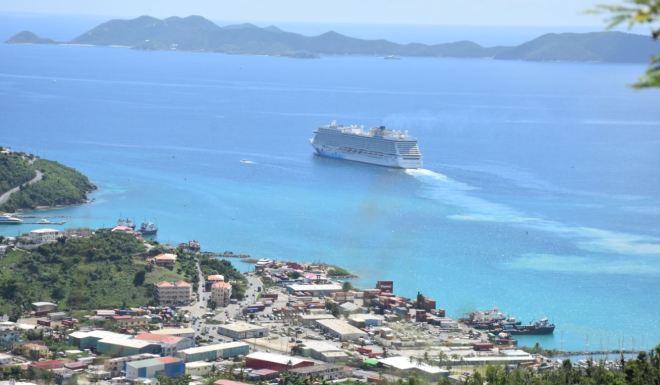
The BVI has been included in ‘Fodor’s No List 2025’, a publication highlighting destinations facing significant challenges due to tourism pressures.
The annual list aims to draw attention to popular locations struggling with the impacts of their own success, urging travellers to consider the well-being of local communities and environments.
Tourism is a cornerstone of the BVI’s economy, alongside financial services. However, the publication pointed out that the current emphasis on cruise tourism has raised concerns among residents and stakeholders. In the first half of 2024, the territory experienced a record influx of over 683,000 visitors, marking a 17% increase compared to the same period in 2023.
Notably, cruise ship passengers accounted for approximately 72% of these arrivals. In contrast, overnight visitor numbers remain nearly 24% below their 2017 peak of 243,000. This shift has led to apprehensions about the economic benefits of cruise tourism, as cruise passengers typically spend less locally than overnight guests.
Allington “Gumption” Creque, owner of Sea It Clear Tours, observed that large groups of cruise passengers often overwhelm local resources and contribute minimally to the local economy during their brief visits. Similarly, opposition legislator Myron Walwyn has argued that the expected economic trickle-down effect from cruise tourism to local businesses, such as restaurants and car rental agencies, is lacking.
Infrastructure limitations
According to the magazine, infrastructure limitations further compound these issues. Communications and Works Minister Kye Rymer acknowledged that the BVI’s current infrastructure cannot support mass tourism. Former BVI Tourist Board Director Sharon Flax-Brutus emphasised the need for comprehensive planning, stating that the territory often overlooks potential drawbacks in its tourism strategies. She highlighted ongoing challenges in tourism planning and preparation, particularly as visitor numbers are expected to rise in the current season.
The publication also pointed to pressing environmental concerns. The BVI’s coral reefs, already vulnerable due to climate change, face additional threats from unregulated anchoring, coastal development, and the use of non-reef-safe sunscreens. While an environmental levy of $10 per tourist has been implemented to fund conservation efforts, the allocation of these funds has been delayed for years by political challenges.
Premier Dr Natalio Wheatley recently announced the procurement of a $100 million loan aimed mainly at infrastructure upgrades. However, this amount falls significantly short of the initially projected $700 million needed for comprehensive improvements.
The inclusion of the BVI in Fodor’s ‘No List’ serves as a call to action for both policymakers and travellers. It underscores the necessity for sustainable tourism practices that balance economic benefits with the preservation of the environment and the well-being of local communities.
Copyright 2024 BVI News, Media Expressions Limited. All Rights Reserved. This material may not be published, broadcast, rewritten or distributed.
This post was originally published on here











